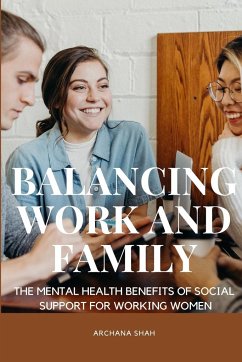The phenomenon of work-family conflict is a worldwide issue and attracts the attention of behavioural scientists and mental health specialists. Traditionally, men were breadwinners and women were homemakers who looked after and took care of family needs. In that respect, work and family domains were considered mutually exclusive and there was minor attention towards outcome of work-family interference. But in recent years, work scenario has changed as more and more women are joining various job positions. Modernizations in terms of economic growth, globalization and equality in opportunities have impacted the work life and employees' well- being (Panatik, Badri et al.,). Women workers have started contributing in volume in work sector, and this contribution is expected to rise with time. In India also, particularly before independence, the women from middle and upper classes were mostly confined to their homes. However, with the formation and implementation of many protective laws and legislations for women, enhancement of educational facilities and advent of globalization; there has emerged a newer professional class of women workers from middle and upper class of the economy. Thus, Indian women are also trying to attain a new place in the world of work.








